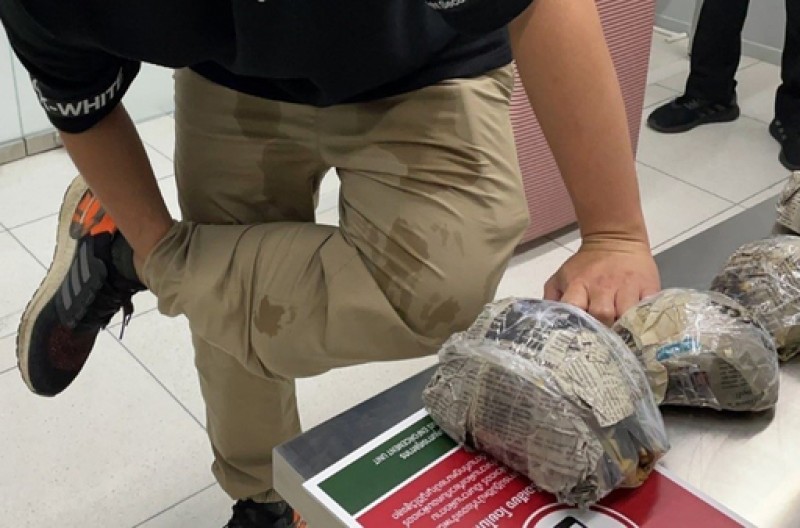Law enforcement agencies from 125 countries worked together on the 2022 Thunder operation, making it the largest operation since these efforts began in 2017.
Kunio Mikuriya, the World Customs Organization Secretary General, believes cooperation is key “to effectively tackling transnational criminal networks, from seizure to arrest to prosecution, as with the data collected, customs administrations can refine their risk management and strategies.”
Over the course of the operation, which ran throughout October, a series of raids were conducted across several countries, where at least 934 suspects were identified and about 2,200 protected animals, plants and timber were seized.
According to Jürgen Stock, the Secretary General of INTERPOL, timber and wildlife trafficking are more than just conservation issues. “Officers lose their lives every year, livelihoods are destroyed, diseases are spread, governments weakened, and entire economies destroyed,” he said.
“The huge financial gains to be made attract serious organized crime and terrorist militants who grease the wheels of crime with heavy doses of corruption.”
Searches took place at several land and air border checkpoints, where law enforcement agencies focused on blocking illegal trade in species protected by local laws or the Convention on International Trade in Endangered Species of Wild Fauna and Flora (CITES), the global wildlife trade convention, INTERPOL’S news release stated.
In Europe, France found reptiles from Central Africa hidden in luggage, while Germany discovered tiger skin amulets in a package from Asia and the United Kingdom seized several ivory pieces after investigating a man selling wildlife online.
Authorities in Namibia confiscated large amounts of timber before they were smuggled on to a third country, while a suspect was arrested in Angola attempting to travel to Asia with rhino horns and ivory ornaments, and Malawian authorities seized elephant tusks from a foreigner from Asia. Elephant tusks were also blocked by security forces in Mozambique from being smuggled to other countries.
In Asian countries, Thailand reported several seizures of tortoises from East Africa and hundreds of live reptiles from Europe. On one occasion, Thai customs detained a man who was traveling with five radiated tortoises concealed in his pants. Radiated tortoises are a critically endangered species.
Indonesia made at least two large seizures of timber bound for the Middle East and Asia. India seized some 1,200 reptiles from iguanas to pythons, monitor lizards and tortoises, declared as “ornamental fish’ and packed in cardboard boxes.
Costa Rica arrested an individual in possession of hundreds of protected wildlife species, while Peru issued an INTERPOL Red Notice against a timber trafficker. At U.S. airports, parrots, iguana eggs, coral, crocodile leather products, caviar and shark meat were seized.
Authorities identified more than 140 companies suspected of engaging in illegal sales of wildlife and forestry products. On that list was a pet shop owner in Chile.
According to Mikuriya, “large scale cross-border operations” like this one “are as much about putting criminals behind bars as about raising public awareness on what species or products people can or cannot buy, sell, or take from the wild.”



